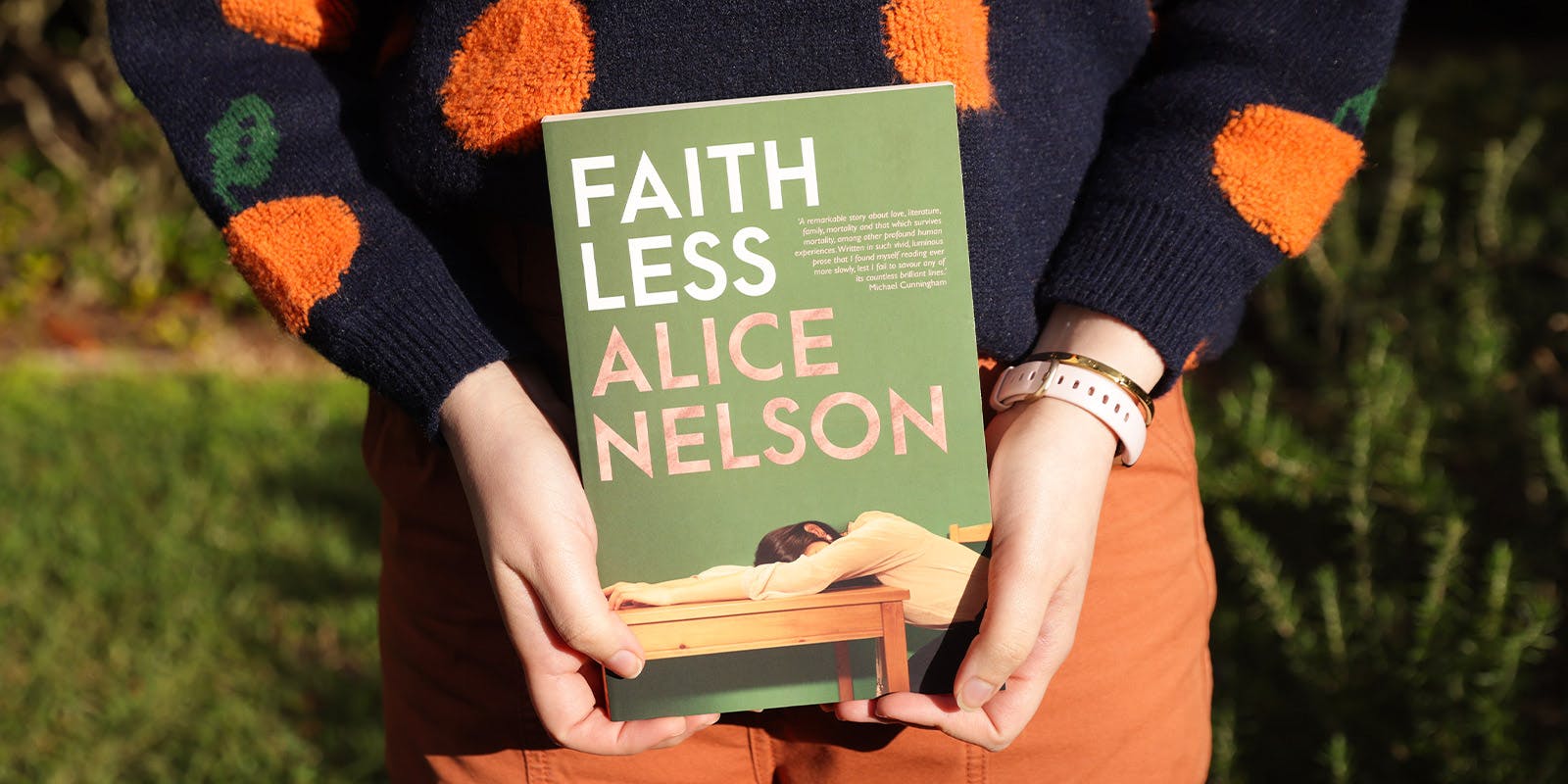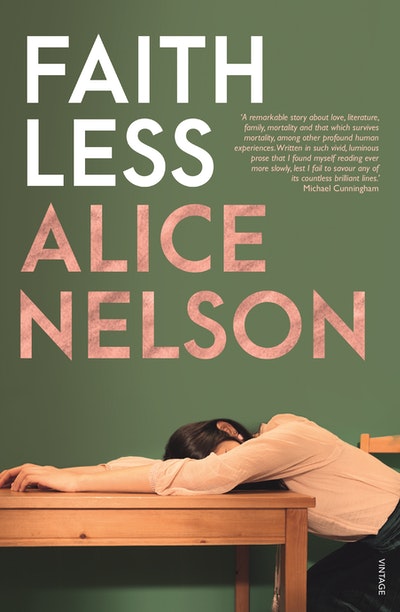We spoke to author Alice Nelson about her new book, Faithless. Learn about her writing experience, how she found her voice, and her trust in readers.
Why did you write Faithless?
I wrote Faithless for the same reason I write most things; to feel my way through some particular ideas. In this case, I was preoccupied with the nature of love and desire, and the unruliness of the human heart. I was also very interested in ideas of betrayal and deception; the lies we tell ourselves and others, and what it means to lose faith with one’s life, one’s self.
This book is jam-packed with complex relationships (Cressida’s relationship with herself, her relationship with Flora, her relationship with Max etc.) What compelled you to focus on this when telling the story?
I think that human relationships are infinitely complex and infinitely fascinating, and I love novels that render them in all their variousness. I do think that we can be perverse creatures, and my characters certainly harm themselves and others in ways large and small in their quest for connection. I wanted to explore some of the ways that we navigate relationships, and the compromises we make to find a place in the world.
The book is so rich with references to art, culture, and literature. Did it require a lot of research, or did this come naturally to you while writing?
Literature, poetry and art in all its many forms are central to my own life, and an enormous part of how I make sense of the world. This is so for Cressida, and for many of the other characters in the novel. They are all writers of some kind, and they all use language in some way to understand themselves and the world around them. I was worried that the world of the characters might feel too rarefied and intellectual, but I actually think that readers are generally very smart, and if reading Faithless inspires them to look up some of the references I include, then that’s a wonderful thing.
Why did you choose to begin the novel where you did?
Although I don’t really plan ahead a great deal, sometimes I will have a specific scene, or a specific image, in my mind. I had a very vivid picture of Cressida sitting on a beach in Suffolk, watching a child play by the edge of the sea. At that point, I didn’t know who the child was, or why she was with Cressida, but it felt to me the right place to start the novel, and I tried to preserve some of its mystery for the reader, who also doesn’t know until later in the book what the little girl’s relationship to Cressida is.
Cressida has such a unique voice, what did you do to develop her voice and the overall tone of the book?
Cressida is the most self-revealing and candid character I have ever written. I knew from the very beginning that she would need to have this kind of unsparing emotional directness, this willingness to question and criticise her own motivations and behaviour, to make her account of such complex topics as love, desire, marriage and infidelity feel authentic.
I was re-reading Virginia Woolf while I was writing Faithless, and while our styles are very different, I admire enormously the way that she is able to weave so much life–so much sorrow and joy and heartbreak and pleasure–into one novel. She’s also extraordinarily skilled at rendering consciousness itself, in all its vastness and mystery. Aspiring to Woolf’s unearthly talent is a high bar to set, but I certainly kept those elements of her fiction in mind as I was writing.
Are there any other authors who inspire your work?
There are so many; the great masters, enduring contemporary favourites and wonderful new discoveries. It’s hard to narrow it down to a handful, but I love Michael Ondaatje, Anne Michaels, Colum McCann, John Banville, Grace Paley, Annie Ernaux, Michael Cunningham, V.S. Naipaul, Anne Carson, Andrew Holleran, W.G. Sebald and Joy Williams. In more recent times, I’ve been really interested in some of the developments in autofiction by writers like Rachel Cusk and Deborah Levy. I also read a lot of poetry and love Louise Gluck, Ada Limon, Stanley Kunitz, Marie Howe and Natalie Diaz, to name just a few.
What was your experience of writing the book? Did the story flow easily, was it harder than expected? Did you feel a lot of pressure to get it right?
I always find writing novels difficult, and this one was particularly complex. Writing for me is a very organic process; there’s only so much planning I can do, and I have to allow for the serendipity and evolution that makes the novel the novel it is. It’s also what keeps me interested; this sense that the story will unfold as I write it. Faithless is my third novel, and by now I’ve learned to give myself over to this and to trust the process, and that made it somewhat less nervewracking to write.
Want to read it with a group? Check out Faithless book club questions.













